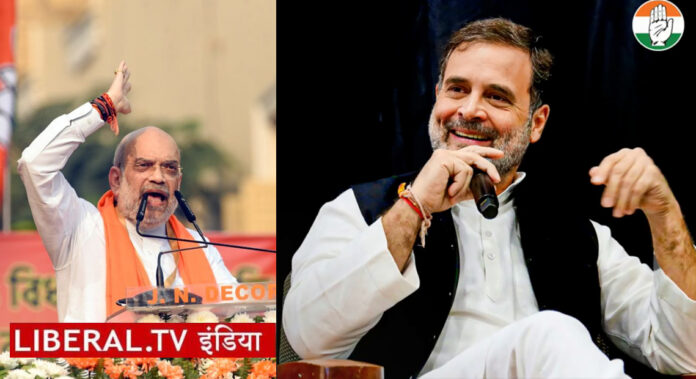Each time Rahul Gandhi travels abroad, particularly to Western countries, he often sparks controversy back home. His trips to Europe or the U.S. typically involve delivering speeches to various audiences, meeting with think tanks, and participating in question-and-answer sessions at select institutions.
Interestingly, it is often the BJP’s support groups that scrutinize and amplify his remarks with additional commentary, rather than Gandhi’s own party members or affiliated groups. This pattern continues with his current visit to the United States, which holds added significance as he now occupies the constitutional position of Leader of the Opposition in the Lok Sabha. This new role carries greater responsibilities, making his statements more impactful and closely monitored. This trip marks his first visit to the U.S. since the recent Lok Sabha elections.
For U.S. audiences, who may not fully grasp the intricacies of Indian politics, Gandhi’s statements could shape a potentially negative perception of India—a nation emerging as a significant global economic power.
While it is common for an opposition leader to criticize Prime Minister Narendra Modi and his government domestically, Gandhi’s critiques often extend to disparaging India, its people, and its institutions on foreign soil. His aim appears to be demonstrating a profound understanding of Indian polity, economy, society, Hinduism, spirituality, and the global economy. At times, this includes praising China’s advancements while minimizing India’s achievements, as he did upon his arrival in the U.S. His comments sometimes suggest a preference for Chinese-style policies, and it’s unclear whether his portrayal of China’s development is based on factual analysis or personal perception.
This dynamic prompts the BJP and its supporters to highlight Gandhi’s controversial statements abroad, framing him as a habitual offender. They argue that when he makes similar comments to a domestic audience, people can make their own judgments based on their experiences. However, the same level of scrutiny and context is often lacking when his statements are made overseas.
During his visit to the U.S., Gandhi questioned a Sikh in the audience about his name and commented on the challenges faced by Sikhs in India regarding their religious symbols and practices. He stated: “First of all, you have to understand what the fight is about. The fight is not about politics. It is superficial. What is your name? The fight is about whether he as a Sikh is going to be allowed to wear his turban in India. Or he as a Sikh is going to be allowed to wear a Kada in India. Or a Sikh is going to be able to go to Gurdwara. That’s what the fight is about and not just for him, for all religions.”
Such comments might lead some to believe that Sikhs and other minority communities in India face significant religious discrimination. However, apart from the 1984 anti-Sikh riots, which occurred after the assassination of Prime Minister Indira Gandhi and involved allegations against several Congress leaders, instances of such discrimination have been rare.
Ironically, Gandhi’s remarks were supported by Gurpatwant Singh Pannun, a militant Khalistan proponent and founder of Sikh for Justice, who typically gains media attention for his anti-India stance. Pannun used Gandhi’s words to further his own agenda.
Gandhi also claimed that the recent Indian parliamentary elections were “not free but heavily controlled,” a statement that has been poorly received, particularly as he had previously criticized the state of Indian democracy during a visit to London last year, urging Western nations and the U.S. to take note.
Additionally, Gandhi discussed his current focus—the caste survey—which he describes as an “x-ray” of Indian society and economy. However, he avoided addressing caste surveys and reservations during his recent visit to Jammu and Kashmir, a region where such benefits were denied until the abrogation of Article 370 in August 2019.



